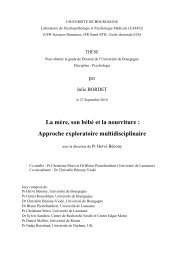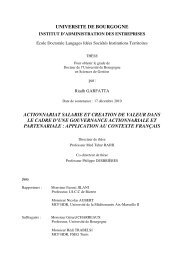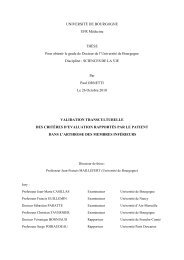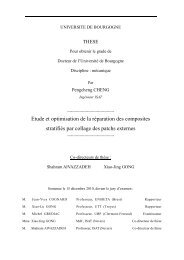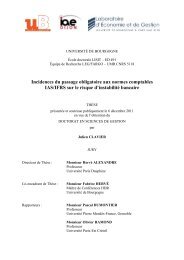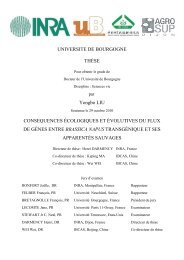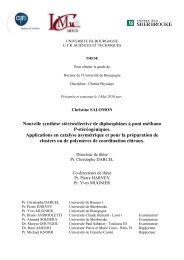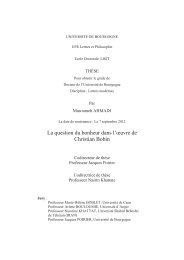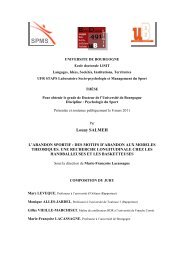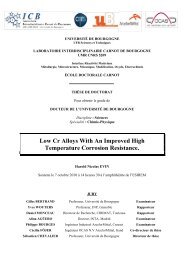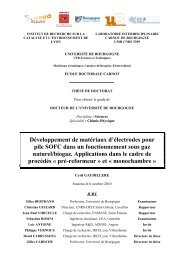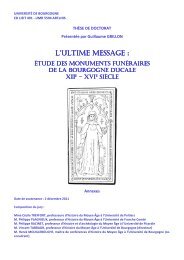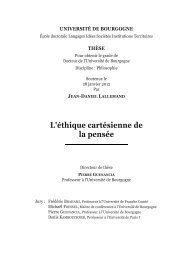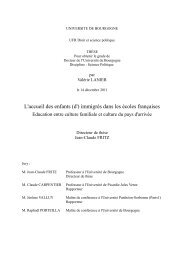Higher education in Asian countries and the role of international ...
Higher education in Asian countries and the role of international ...
Higher education in Asian countries and the role of international ...
You also want an ePaper? Increase the reach of your titles
YUMPU automatically turns print PDFs into web optimized ePapers that Google loves.
22<br />
important actors at <strong>in</strong>ternational level. States <strong>in</strong>vest <strong>in</strong> IOs to protect <strong>the</strong>ir own <strong>in</strong>terests <strong>and</strong> to<br />
advance or impede state goals <strong>in</strong> <strong>the</strong> <strong>in</strong>ternational economy, politics, environment <strong>and</strong> security<br />
(Koremenos, Lipson, & Snidal, 2001). Be<strong>in</strong>g an active component <strong>of</strong> <strong>in</strong>ternational system<br />
organizations also struggle for survival <strong>and</strong> resist all those forces that endanger <strong>the</strong>ir existence.<br />
In this regard organizations survive only if <strong>the</strong>y are able to react to changes that occur <strong>in</strong> <strong>the</strong><br />
world around <strong>the</strong>m (Chevaillier, 2002).<br />
The history <strong>of</strong> International Organizations (IOs) as a field is built on a rich <strong>in</strong>tellectual tradition<br />
that developed from 1940s to late 1960s <strong>and</strong> this history has been a part <strong>of</strong> <strong>the</strong> elaboration <strong>of</strong><br />
more complex <strong>and</strong> self-consciously analytical formulations (Katzenste<strong>in</strong>, Keohane, & Krasner,<br />
1998). Usually it is believed that states are <strong>the</strong> major designer <strong>of</strong> <strong>the</strong> IGOs but empirical realities<br />
shows that about two-thirds <strong>of</strong> <strong>the</strong> IGOs that exist today were created with some form <strong>of</strong><br />
<strong>in</strong>volvement by <strong>in</strong>ternational bureaucrats from pre-exist<strong>in</strong>g <strong>in</strong>tergovernmental organizations<br />
(Shanks, Jacobson, & Kaplan, 1996). So, like liv<strong>in</strong>g organisms, IGOs also struggle for <strong>the</strong>ir<br />
survival, grow <strong>and</strong> reproduce.<br />
Are <strong>in</strong>ternational organizations important for <strong>the</strong> society? Regard<strong>in</strong>g this question, <strong>the</strong>re exist<br />
two ma<strong>in</strong> views among <strong>the</strong> general public: <strong>the</strong> first one is a realistic view- <strong>in</strong>ternational<br />
organizations should be treated as significant actors on <strong>the</strong> <strong>in</strong>ternational stage; <strong>and</strong> <strong>the</strong> second<br />
one is an idealistic view- <strong>in</strong>ternational organizations are <strong>the</strong> solution <strong>of</strong> all major problems, but<br />
<strong>the</strong> fact is that IOs are nei<strong>the</strong>r irrelevant nor omnipotent <strong>in</strong> global politics (Diehl, 2005).<br />
Conventional wisdom regards <strong>the</strong> formation <strong>of</strong> IGOs as an eng<strong>in</strong>eer<strong>in</strong>g project <strong>in</strong> which states<br />
weigh <strong>the</strong> costs <strong>and</strong> benefits <strong>of</strong> different design features, such as a dispute resolution mechanism,<br />
<strong>and</strong> <strong>the</strong>n select those that pass <strong>the</strong> cost-benefit test (Koremenos, Lipson, & Snidal, 2001).<br />
The exist<strong>in</strong>g <strong>the</strong>ories need fur<strong>the</strong>r ref<strong>in</strong>ement to serve <strong>the</strong> real world because: “Realism,<br />
liberalism, constructivism, <strong>and</strong> organization <strong>the</strong>ory provide different approaches to organiz<strong>in</strong>g<br />
<strong>and</strong> <strong>in</strong>terpret<strong>in</strong>g data on <strong>and</strong> from <strong>the</strong> <strong>in</strong>ternational public sector. While realism has not taken<br />
<strong>in</strong>ternational organizations seriously, liberalism has recognized <strong>the</strong>ir importance <strong>in</strong> support<strong>in</strong>g a<br />
cooperative <strong>in</strong>ternational community yet is too concerned with meet<strong>in</strong>g this realist challenge <strong>of</strong><br />
IO‟s relevance. Thus, <strong>the</strong> question <strong>of</strong> whe<strong>the</strong>r <strong>in</strong>ternational organizations matter is discussed<br />
over any concerns <strong>in</strong> actually underst<strong>and</strong><strong>in</strong>g how <strong>the</strong>y work. While policy oriented word (e.g.,<br />
peacekeep<strong>in</strong>g, development, human rights) has shed some light on <strong>the</strong> work <strong>of</strong> IOs <strong>and</strong> <strong>the</strong>ir



